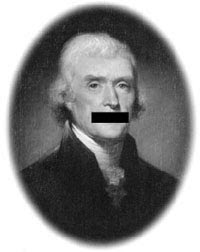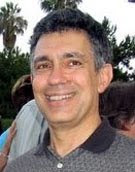Special Governing Board meeting & Academic Senate request
Valerie Goodwin
Sent: Thursday, January 28, 2010 9:56 AM
To: Yolanda Salcido; Jean Roesch; Jorge Dominguez; Nick Aguilar [picknickaguilar@cox.net]; Terri Valladolid; Chris DeBauche [howsemewzyk@hotmail.com]; ASO PRESIDENT
Attachments: Evaluation (1).doc
Date: January 28, 2010 To: Southwestern College Governing Board members From: Valerie Goodwin-Colbert, Academic Senate President In lieu of the Special Governing Board meeting tonight, may I encourage you as guardians of the institutional due process, that an evaluation process, tools and timeline for the evaluation of the Superintendent/President have not been publicly communicated and accessible, before the evaluation is administered or finalized by the Governing Board. In accordance to Southwestern College District Policy 2435 Evaluation of the Superintendent/President, the ‘evaluation process is required to be developed’, and to this date the public have not had prior communication of that process. It is in the spirit of promoting an environment of transparency, trust and responsibility that I am asking that the evaluation processes are made public. Your special meeting tonight should be used to establish the process, including tools and timeline, which will be used over the following month to do an accurate and public process. This is critical in the coming days as we receive the Accreditation status and ACCJC mandates for Southwestern College to maintain Accreditation, with the amount of attention in that report that focuses on trust and building a campus environment to be healthy again. The Academic Senate approved Tuesday an evaluation tool, a very thorough survey, which will be dispersed to all faculty within the next several hours electronically. The survey is one of many evaluation tools that have been used in the past and we are promoting this tool again to give the Governing Board as much input as possible in decisions that would otherwise be considered ‘blind’. The accumulative responses and results will be presented to you as Governing Board members, before the February Governing Board meeting for your review and capability to utilize a broader evaluation of the Superintendent/President’s performance. I have attached the survey tool for your review and how this could be a fair and complete evaluation instrument used not only by faculty but by the campus community as a whole. Thank you for your continued service to Southwestern Community College District.
Superintendent/President Evaluation FACULTY REPORT The letter “grades” below reflect the grade points which will be used to complete the evaluation. Please enter the grades points (4-0) only in the boxes next to the questions. Use N/A as needed. A = (Excellent) Greatly Above Expectation, 4 grade points B = (Good) Above Expectation, 3 grade points C = (Average) At Expectation, 2 grade points D = (Poor) Below Expectation, 1 grade point F = (Unsatisfactory) Significantly Below Expectation, 0 grade points N/A = Not Applicable | LEADERSHIP | | Grade Points | |
| - To what extent does the Superintendent/president inspire faculty to do its professional best?
| |
| - To what extent does the Superintendent/president act in a manner that motivates other administrators to high standards of fairness, enthusiasm, honesty, integrity and accomplishment?
| |
| - To what extent does the Superintendent/president promulgate a vision, including a specific set of goals and priorities that employees are inspired to follow?
| |
| - To what extent does the Superintendent/president demonstrate effectiveness and diplomacy in working with others and in maintaining productive relationships?
| |
| - To what extent does the Superintendent/president demonstrate the ability to make good judgments, rally support, and give appropriate direction when it is called for?
| |
| - To what extent is the Superintendent/president well organized, able to make other managers work as a team and produce quality work?
| |
| - To what extent does the Superintendent/president’s personal style include originality, creativity and a sense of humor?
| |
| - Overall, how would you rate your confidence in the leadership ability of the Superintendent/president?
| Comments: | PROFESSIONAL KNOWLEDGE AND EXPERTISE | | Grade Points | |
| - To what extent does the Superintendent/president demonstrate knowledge of the responsibilities of the position of Superintendent/president and how well does she/he integrate this knowledge into the operation of the district?
| |
| - To what extent does the Superintendent/president demonstrate understanding of local and state finance; and institute sound accounting procedures bthat assure fiscal confidence, integrity and reasonable balances among the competing interests of compensation, capital and maintenance and reserves?
| |
| - To what extent does the Superintendent/president foster reasonable strategic planning that includes program review, local demographics, long-range community needs and incorporates this data in the local district master plan?
| Comments: | COMMUNICATION SKILLS | | Grade Points | |
| - To what extent does the Superintendent/president communicate clearly and persuasively in written and oral messages?
| |
| - To what extent is the Superintendent/president an open individual who listens carefully, is respective to others, welcomes new ideas, keeps his/her office door open?
| |
| - To what extent does the Superintendent/president communication effectively with the community at large and build understanding and support for agreed upon district goals and needs?
| |
| - To what extent does the Superintendent/president convey clear ideas of where the district is now and where it is going?
| Comments: | SHARED GOVERNANCE | | Grade Points | |
| - To what extent does the Superintendent/president demonstrate understanding of AB 1725 and honor its mandates?
| |
| Does this include: | |
| - Effective hiring policies?
| |
| - Effective peer evaluation for full-time and part-time faculty?
| |
| - Effective tenure evaluation procedure?
| |
| - Effective management evaluation procedures?
| |
| - Satisfactory Faculty Services Areas (FSA) and competency standards, including equivalency?
| |
| - Commitment to achieving 75/25 ratio of full-time to part-time faculty?
| |
| - To what extent does the Superintendent/president demonstrate a commitment to open development of the district budget and policies?
| |
| Does this include: | |
| - A voice for both senate and union?
| |
| - Sharing of reliable data?
| |
| - Reasonable cost of living adjustments?
| |
| - Reasonable benefits package?
| |
| - Reasonable faculty support
| |
| - Reasonable deferred maintenance and capital?
| |
| - To what extent has the Superintendent/president fostered a governance structure that promotes collaborative, consensus driven decision making?
| |
| - To what extent does this governance structure allow adequate time and opportunity for all faculty constituencies to provide input prior to decision making?
| |
| - To what extent do the Superintendent/president’s final decisions on major policy issues generally reflect the views of faculty leaders?
| Comments: | COMMITMENT TO INSTRUCTION | | Grade Points | |
| - To what extent does the Superintendent/president demonstrate a commitment to teaching excellence?
| |
| Does this include: | |
| - Clean, well kept classrooms?
| |
| - Adequate, up-to-date instructional equipment?
| |
| - Adequate duplicating services for class materials?
| |
| - Reasonable class size?
| |
| - Adequate tutorial support?
| |
| - Adequate counseling support?
| |
| - Adequate instructional support (library, video, etc.)?
| |
| - Cultural pluralism and student diversity?
| |
| - Faculty control of curriculum development?
| |
| - Special recognition for outstanding teaching?
| |
| - Encouragement for innovation?
| |
| - Adequate student grievance policy?
| |
| - Adequate sexual harassment and discrimination policies?
| |
| - To what extent does the Superintendent/president demonstrate a commitment to high Quality, balanced instructional program?
| Comments: | RELATIONSHIP WITH FACULTY AND FACULTY ORGANIZATIONS | | Grade Points | |
| - To what extent does the Superintendent/president actively promote unity, cooperation and harmony among senates, collective bargaining units, administration and other employees groups?
| |
| - To what extent does the Superintendent/president support senate and/or collective bargaining activities by granting reasonable reassigned time to carry out duties?
| |
| - To what extent does the Superintendent/president accept the recommendations of the senate in academic and professional matters?
| |
| - To what extent does the Superintendent/president assure that senate leaders and faculty have adequate and convenient access to local governing board trustee meetings?
| |
| - To what extent is the Superintendent/president supportive of Title 5 Regulations?
| |
| - To what extent does the Superintendent/president support the collective bargaining process as a valid tool for resolving employment issues in a fair and equitable manner?
| |
| - To what extent does the Superintendent/president use his/her influence to encourage negotiators to reach agreement on proposals in an efficient, timely manner and non-controversial manner?
| |
| - To what extent does the Superintendent/president require managers to know the collective bargaining contract, honor its provisions and keep abreast of changes?
| |
| - To what extent does the Superintendent/president promote prompt and fair resolution of conflict between administration and employees?
| |
| - To what extent has the Superintendent/president been able to create a high level of morale at Southwestern College?
| Comments: | PROFESSIONAL DEVELOPMENT | | Grade Points | |
| - To what extent does the Superintendent/president actively support and fund campus teaching resources centers and/or similar professional development programs?
| |
| - To what extent does the Superintendent/president support a professional development leave (sabbatical) program at Southwestern College?
| |
| - To what extent does the Superintendent/president actively support faculty-driven flex day programs and activities?
| Comments: Please use this space for additional comments, as appropriate: |
















